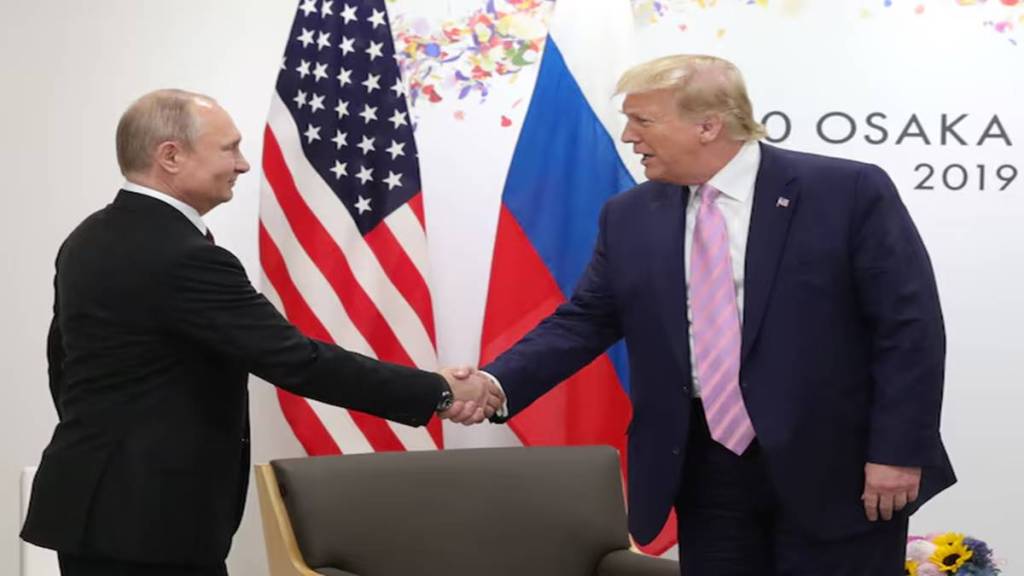As the world watches with bated breath, the possibility of a high-stakes meeting between President-elect Donald Trump and Russian President Vladimir Putin looms large. The two leaders, are reportedly set to meet soon after Trump takes office on January 20, 2025. This meeting, if it materializes, could have far-reaching implications for the war in Ukraine, the future of US-Russia relations, and the balance of global power.
Why Is This Meeting So Crucial for Ukraine and the World?
For Ukraine, the war with Russia has been nothing short of catastrophic. Since Russia’s invasion in February 2022, tens of thousands of lives have been lost, millions have been displaced, and cities lie in ruin. The conflict has also drawn the US and its allies into a complex and volatile support role, with billions of dollars in military aid and weapons sent to Ukraine. However, the prospect of Trump, a long-time critic of US involvement in the conflict, stepping into office has raised significant concerns about the future of this support.
According to reports, Trump’s promise to meet with Putin “very quickly” after his inauguration speaks to his desire to end the war as swiftly as possible. The former president has often stated that he could “end the war in a day” and that he believes Putin would be willing to negotiate. The meeting’s potential to broker a deal to stop the violence could mark a dramatic shift in US foreign policy, especially if it leads to a cessation of support for Ukraine.
While some argue that Trump’s diplomatic approach could create an opening for peace, others warn that reducing support for Ukraine could weaken its defenses and embolden Putin, whose actions have already violated international law and human rights.
The Legal Minefield: Putin’s ICC Warrant
There’s another complicating factor that cannot be ignored: the legal challenges surrounding Putin’s potential travel. The Russian president is currently under an arrest warrant issued by the International Criminal Court (ICC) for his role in the unlawful deportation of Ukrainian children to Russia. This puts any country hosting the meeting in a risky position, especially Switzerland, which has offered to facilitate the talks.
As a member of the ICC, Switzerland is legally obligated to arrest Putin if he steps onto its soil. However, Swiss officials have suggested that they might make an exception for peace negotiations, underscoring the delicate balance between adhering to international law and maintaining diplomatic avenues for conflict resolution. This legal dilemma raises questions about how such talks could be managed while still respecting international agreements and obligations.
Serbia, another potential host for the meeting, also faces unique challenges. While Serbia is not a member of NATO and has long maintained a neutral stance on international conflicts, it has remained loyal to Russia. The country’s refusal to join sanctions against Moscow and its historic ties with the Russian government make it an appealing venue for both Trump and Putin. However, Serbia’s support for the Russian leader will likely provoke backlash from Western countries, which could impact its diplomatic standing.
The Power Play: Trump’s Role in Global Diplomacy
Trump’s willingness to engage with Putin on such an urgent issue reflects his broader approach to international diplomacy. Throughout his political career, Trump has shown a preference for direct negotiations and a more transactional foreign policy. His position on Ukraine has been consistent in calling for an end to US military involvement in the region, suggesting that Ukraine should make peace with Russia to end the war. Trump’s critics, however, worry that this could signal a retreat from US leadership on the world stage.
Ukrainian officials have expressed concern about what a potential shift in US policy under Trump might mean for their country’s future. If Trump insists on peace talks that favor Russia, it could jeopardize Ukraine’s territorial integrity and diminish Western support. Yet, there’s also a hope that Trump’s intervention could be the catalyst for a new chapter in the war’s resolution.
What Does This Mean for the Future of US-Russia Relations?
A successful meeting between Trump and Putin could mark a seismic shift in US-Russia relations. The Obama and Biden administrations have taken firm stances against Putin, particularly with regard to his aggressive actions in Ukraine. Trump’s willingness to engage with the Russian leader, and his apparent affinity for Putin, could fundamentally alter the trajectory of US foreign policy toward Russia.
What Lies Ahead: Trump’s Strategy and the Path to Peace
In the weeks following his inauguration, Trump’s strategy on Ukraine will become clearer. He has already appointed Keith Kellogg, a former national security adviser, as his special envoy for Ukraine and Russia, further signaling his intent to engage in high-level diplomacy. Trump has been vocal about his desire to bring Kyiv and Moscow to the negotiating table, though the specifics of how such talks would proceed remain uncertain.
One critical issue will be whether Trump can secure Ukrainian participation in any peace talks. Ukraine’s President Volodymyr Zelensky has expressed hope that under Trump, the war could end sooner. However, the Ukrainian government remains wary of any concessions that could lead to territorial losses or undermine its sovereignty.
The coming months will reveal whether Trump’s diplomatic overtures are more than just promises or whether they result in tangible outcomes that change the course of the war and the international order.


